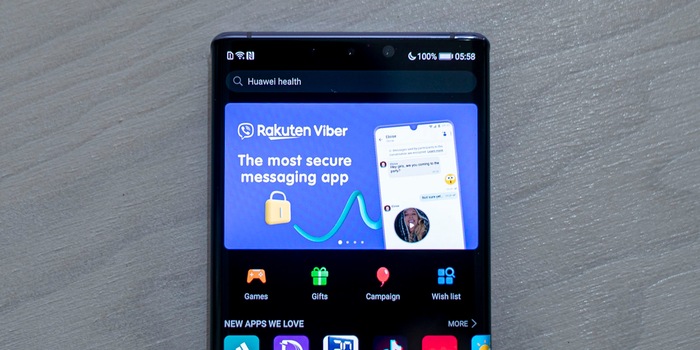
Huawei vs USA: Google wants to work with Huawei, but what does Huawei want?
Google has requested an exemption. The search engine giant wants to work with the Chinese company. Huawei is facing strategic questions.
Google has submitted a waiver request to work with Huawei. This was reported by business portal Finanzen (in German). If Google receives this authorisation, there will be nothing to prevent the return of the Google Play Store on Huawei devices. It is not yet known if or when this will happen.
But does Huawei want it to?
Let's say Google is allowed to work with Huawei again and the Huawei P40 Pro reappears with Google services. Or even that Google services are delivered via update to devices that lack them like the Mate 30 Pro or Mate Xs. Huawei would still be in a precarious situation. A waiver is no guarantee of unlimited cooperation and a rosy future.
Even if the US were to remove Huawei from the list that prohibits US companies from cooperating with Huawei, there would be no guarantee that Huawei would not return to the list if US President Donald Trump's government so decided.
This begs the question: does Huawei want this?
There is no reason for Huawei to take on the role of plaything in a conflict that affects the company solely on the basis of its nationality. But, if Huawei expects to benefit from this cooperation, then Google could return to the devices.
The Chinese company is in the interesting position of having just proved that profit growth is possible worldwide, even without Google services. Huawei is also large and influential enough economically to be able to face serious competition from Google. Although the Huawei App Gallery is still fairly China-centric, it is improving all the time. The Chinese company is investing huge sums of money in developing and internationalising its own App Store. It has even made common cause with Xiaomi, Oppo and Vivo.
Huawei keeps a low profile
The question of whether and to what extent Huawei wishes to remain the plaything of the political machinations of two countries remains open. Statements made by the company at the recent press conference are vague.
Richard Yu did not make any statements about how things should continue with Huawei and the US. But he did stress the commitment to the App Gallery. An alternative to Google, he said, is an opportunity for developers and consumers.
But at the same time, the words were chosen in such a way that you couldn't read between the lines. Statements made on social media have thus been toned down so that a comeback is possible without Google or Huaweis losing face. Meanwhile, the temporary waiver was extended for a further 45 days at the beginning of February 2020. However, this only affects communication technologies relevant to the system.
For the first time, Google is doing more than lobbying in the dispute. Instead of trying to influence politicians, the company has decided to officially request a waiver. But why? Does Google want to influence China's technological progress? After all, such cooperation could give Google at least indirect influence over the Chinese market.
Journalist. Author. Hacker. A storyteller searching for boundaries, secrets and taboos – putting the world to paper. Not because I can but because I can’t not.